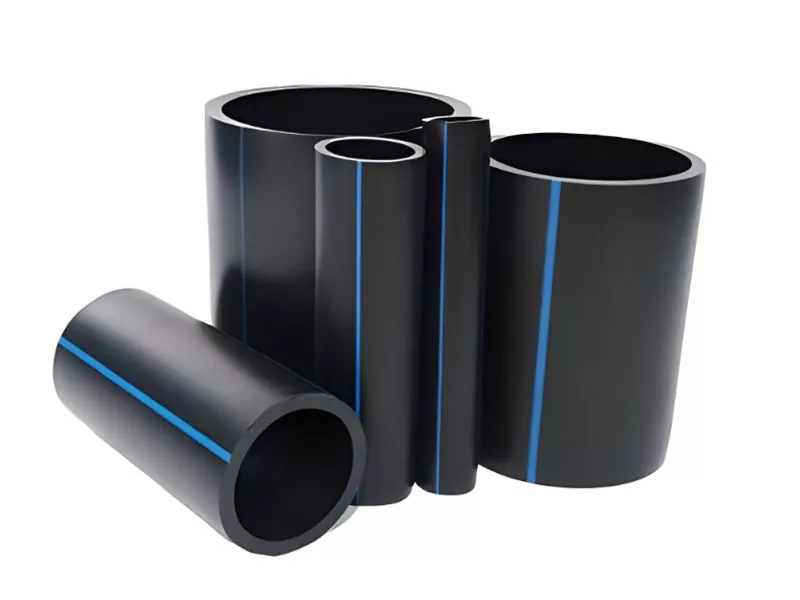Essential Reasons to Choose hdpe pipe suppliers Midland TX for Reliable Sourcing
Wiki Article
Understanding the Trick Advantages of HDPE Pipeline for Water and Wastewater Monitoring
Using HDPE pipe in water and wastewater monitoring offers various advantages that warrant factor to consider. Its extraordinary longevity and lengthy life-span make it a favored selection for many projects. Furthermore, the material's resistance to corrosion and chemical damage enhances its integrity in various atmospheres. However, the advantages prolong beyond simply durability and resistance. Exploring its cost-effectiveness and environmental impact reveals much more compelling factors for its extensive adoption in modern-day facilitiesOutstanding Toughness and Durability

HDPE pipeline stands apart for its exceptional longevity and longevity, making it a recommended choice in water monitoring systems. Created from high-density polyethylene, these pipelines can withstand substantial pressure and anxiety, making certain reputable performance gradually. Their durable nature permits them to endure extreme ecological problems, including temperature changes and soil motions, which can create other products to stop working.
The lifespan of HDPE pipes often exceeds half a century, giving a cost-effective option for districts and sectors alike. Additionally, the material's lightweight residential properties streamline installment, decreasing labor expenses and timeframes. This durability minimizes the requirement for regular repair work or replacements, further improving its financial allure.
In water management applications, the reliability of HDPE pipes implies fewer disruptions and improved solution continuity, making them essential to sustainable framework growth. The mix of longevity and durability strengthens HDPE's duty as a foundation in efficient water monitoring services.

Resistance to Deterioration and Chemical Damage
While several products yield to deterioration and chemical damages gradually, HDPE pipelines display amazing resistance, making them suitable for various water management applications. This resilience comes from the molecular framework of high-density polyethylene, which is naturally non-reactive and does not rust like metals or weaken from direct exposure to rough chemicals. Because of this, HDPE is highly reliable in environments with hostile substances, such as wastewater systems that may include acids, bases, and organic solvents.
Furthermore, HDPE pipelines can endure environmental aspects such as dirt acidity and saline problems, additionally boosting their suitability for varied applications (Pipe Supplier American Plastics Midland). Their ability to preserve architectural honesty gradually minimizes the danger of leaks and failings, which is essential in making certain the safety and dependability of water circulation and wastewater monitoring systems. The resistance to corrosion and chemical damage noticeably adds to the overall performance and long life of HDPE piping options.
Cost-Effectiveness and Financial Benefits
When thinking about the economic implications of water management systems, the cost-effectiveness of HDPE pipelines becomes obvious. These pipelines offer reduced setup and upkeep expenses compared to traditional materials like steel or concrete. Their light-weight nature simplifies transport and setup, resulting in decreased labor expenses. In addition, HDPE pipelines display a lengthy life-span, frequently exceeding 50 years, which translates to fewer replacements and long-lasting cost savings.The resistance of HDPE to corrosion and chemical damages decreases the requirement for costly repair services and substitutes. The pipes also support effective water circulation, minimizing energy expenses associated with pumping systems. By mitigating leakages and water loss, HDPE pipelines add to significant financial advantages for communities and industries alike. Overall, the preliminary financial investment in HDPE piping can yield substantial monetary returns over the lifespan of the water monitoring system, making it a sensible selection for sustainable framework development.
Environmental Sustainability and Decreased Effect

Versatility and Adaptability in Installment
Due to their distinct residential or commercial properties, HDPE pipes use amazing flexibility and adaptability in setup, making them appropriate for a variety of applications. Their lightweight nature permits much easier handling and transportation, lowering labor costs and installation time. HDPE pipelines can be bent and shaped to fit numerous surfaces and project demands, which is especially beneficial in testing environments.In addition, their resistance to deterioration and chemical damages permits installation in diverse setups without the need for specialized safety layers. check here The capacity to fuse joints creates a constant, leak-free system, boosting the general honesty and dependability of the installation. HDPE's adaptability additionally suits ground motion, reducing the threat of damage in areas susceptible to shifting soil. On the whole, these qualities make HDPE pipes not only flexible however likewise a preferred selection for water and wastewater monitoring systems.
Regularly Asked Questions
How Does HDPE Pipe Contrast to PVC in Water Administration Applications?
HDPE pipe uses superior adaptability, resistance to deterioration, and resilience compared to PVC. Its lighter weight facilitates easier installment, while its long life-span lowers substitute expenses, making HDPE a favored choice in water administration applications.What Is the Life-span of HDPE Pipes Under Common Conditions?
Under normal conditions, HDPE pipelines can have a lifespan varying from 50 to 100 years. Their durability and resistance to corrosion add to their long-term performance in various applications, making them a reliable choice for facilities.Are HDPE Water Lines Recyclable After Their Life Span?
Yes, HDPE pipelines are recyclable after their life span. American Plastics HDPE Pipe for Oilfield. They can be refined and repurposed into brand-new items, significantly decreasing environmental effect and promoting sustainability within the market, making them an environment-friendly choice for piping solutionsWhat Is the Installation Refine for HDPE Piping?
The installment process for HDPE pipelines entails site prep work, trenching, pipeline combination or mechanical signing up with, backfilling, and pressure screening. Appropriate strategies guarantee a sturdy and effective system for transferring water and wastewater effectively.Can HDPE Pipeline Be Utilized for Both Potable and Non-Potable Water Solutions?
Yes, HDPE pipelines can be made use of for both potable and non-potable water systems. Their flexibility, longevity, and resistance to deterioration make them suitable for numerous applications, ensuring safe and reliable transport of water in various contexts.Report this wiki page